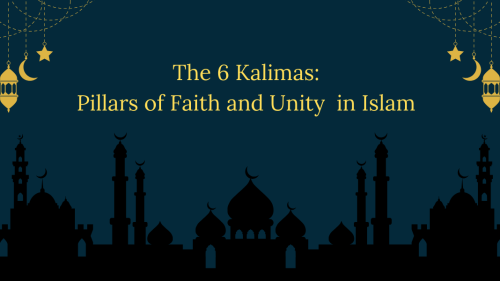Westernization and Muslims’ Spiritual Apathy

When Sheikh Muhammad ‘Abduh (1849-1905), one of the most influential Muslim scholars of the late 19th and early 20th century, famously declared that he had found Islam but no Muslims abroad (in the West), and Muslims but no Islam at home (in the Muslim world), he wanted to bring home the message that Muslims were more and more drifting away not only from the original revealed message of Islam, but also from the power and guidance both of sound reasoning and pure human nature, or instinct.
As such, Muslims became very weak and vulnerable. While Westerners were increasingly abandoning their traditional religious beliefs and values in favor of pervasive secularism, agnosticism, irreligious modernism and liberalism, Muslims were grappling with the task of reclaiming a collective identity, orientation and purpose. Trying to find their feet in the midst of emerging modern trends and phenomena, which were fanned by the notions of active westernization, imperialism and globalization, Muslims were consumed by the idea of a mere cultural and civilizational survival.
Though avid proponents of secular humanism and scientific materialism, Westerners were enabled to easily overshadow Muslims in many a civilization-building aspect. That was so on account of their faithfulness to the positions and roles of sound reasoning and intrinsic human nature, something that Muslims were increasingly finding hard to do.
It is true that Muslims possess the heavenly inspiration and guidance, but for the latter’s actualization and application in the complex vicissitudes of life, the function of sound reason and unimpeded human nature, or instinct, is always paramount. Neither revelation, nor human reason and human nature alone, will suffice for the realization of a comprehensive civilizational program. Subtle integration between the two is the only solution and way forward. This way, whereas Westerners were compromising especially their spirituality and morality, Muslims were increasingly compromising everything. Having forsaken both revelation and reason, they were in danger of losing both this world and the Hereafter.
The problem of discrepancies between Islam and Muslims, which Sheikh Muhammad ‘Abduh highlighted more than a century ago, was continually in force for a long time. Due to a number of internal as well as external factors, it, of late, kept growing, and its negative effects multiplying, at a rate hitherto unheard of, so much so that today’s Muslims as the ummah (community) stand as far from Islam -- as a civilizational force -- as never before. The greatest of optimists can hardly see a glimmer of light at the end of the tunnel.
Unfortunately, the Muslim youth are repeatedly the biggest victim of the whole tragedy, as they often find themselves painfully torn between gloomy reality and fancy dreams, ambiguous rhetoric and concrete action, and between blind imitation and formalism, and pursuing the authentic meaning and substance of life. The condition is bound to eventually take its toll on the intellectual, spiritual and moral development of the Muslim youth, depriving the ummah thereby of their badly needed involvements and contributions for its alleviation and growth.
The situation made a scholar to observe that while a great many Muslims declare themselves Muslims, they, in actual fact, are hardcore materialists and sceptics. While their lips attest to the monotheistic creed of Islam, their hearts and minds embrace and take great delight in something else.
In the same vein, some who reverted to Islam also said: “Thank God we knew Islam before knowing Muslims”.
What are the main reasons for this spiritual apathy?
Westernization, as a process whereby societies come under or adopt Western culture, including lifestyle, religion, philosophy, entertainment, government and values, is often cited as one of the main reasons for a rapid decline in Muslims’ religiosity. It is often perceived that being westernized is the antithesis of being a good Muslim.
Westerners made so much progress in various areas of culture and civilization that many Muslims could not resist the prospect of following in their footsteps in order to attain the same results. This applied as much to such areas that did not conflict with the message of Islam, as to such that plainly did. Western development models were aggressively promoted as most progressive and as something man has always idealized and dreamed about. A worship-like attitude was often attached to them.
But if Muslims are westernized, they are expected to be as materialistically advanced and prosperous as Westerners themselves. They are expected to be there or thereabouts. That, however, is not the case by any means.
One wonders, if Muslims are westernized, why their institutions of learning are not as advanced and dynamic as those in the West, why their economies are not as robust, why their governments are not as functional, just and honest, why their cities are not as efficient and clean, why their judiciaries are not as independent, why their legal systems are not as fair and just, why their citizens’ human rights are not as much respected, why they are not as free and democratic, why their natural environments are not as much taken care of, etc.
All this shows that Muslims are not westernized in the sense that they painstakingly follow, or try to benefit from, the West in what is inherently good, beneficial and in harmony with the Islamic message and values, as well as with Muslim cultures, tradition and history. Such a proposition applies, by and large, to certain aspects of those worldly life segments as industry, science, technology, politics, economics, government, media and, to some extent, language. That is consistent with the Prophet’s words: “Wisdom is the lost property of the believer, he may claim it wherever he finds it” (Jami’ al-Tirmidhi).
Rather, Muslims are westernized in the sense that they deliberately chose to be a leading consumer of the Western lifestyles and a dumping ground for the junk of Western culture. They chose to be at the receiving end of the Western cultural imperialism.
At times, many Muslims appear to be more western than Westerners themselves. They developed an inferiority complex, believing that anything associated with the West is superior, and anything associated with them is mediocre. Especially in their cultural, intellectual, entertainment and professional matters, the epicenters of Western culture became their qiblahs.
It is undeniable that culturally, the West is in retreat. The edifice of its culture is steadily crumbling, but Muslims, led by their incompetent governments, seem to be the last to realize that. A number of Muslim countries are poised to be the last bastions of Western culture.
As a result, Muslims abandoned their glorious Islamic teachings and values in favor of Western values rooted in atheism, materialism, hedonism, selfishness, discrimination and greed, whereby God has been either rejected or humanized, and man, in turn, with his animal desires, deified. Muslims, moreover, ended up exploring and idolizing Western people’s histories, national institutions, heroes and traditions, neglecting, or utterly forgetting, their own. They also tailored their educational systems in such a way as to serve primarily the interests of the West, rather than their own. Thus, the status quo was set to be perpetuated interminably, and the uninterrupted supply lines for puppet politicians, business leaders, aristocrats, educators and other professionals, ensured.
That said, one wonders – for example -- what made the Saudi government happy to allow some hotels, restaurants, coffee shops, clothing stores and fashion shops, whose brands evoke, yet stand for the spirit and symbols of more than a few dimensions of Western culture, to operate in the immediate vicinity of al-Masjid al-Haram. Since they are meant to accommodate, feed and satisfy other basic needs of millions of pilgrims, those hotels, restaurants, coffee shops, clothing stores and fashion shops indirectly constitute a segment of the immense and ever expanding complex of al-Masjid al-Haram. That’s why they must be governed more seriously and more accountably.
Some of the fancy and top-notch hotels, which also house extravagant shopping centers, appear to insightful observers as good as transformed into temples of materialism, consumerism and modernism -- as comprehensive worldviews and ideologies that stand at the diametrically opposite points of the tawhidic worldview and ideology of Islam.
If polytheists and idolaters (in fact, all nonbelievers) are not allowed to set their foot in the holy precincts of both Makkah and Madinah -- in view of them being holy cities that contain the two holiest mosques in Islam -- because such persons (their bodies, minds and souls) are impure (najas) (al-Tawbah, 28), then, the same could be said about bad ideas and values and their various physical manifestations. They, too, must be kept as far away from the two holy cities and their holy mosques as possible.
Surely, the greatest enemies of Muslims are neither some governments, nor armies, but ignorance and certain bad ideas and values. They are most evil, impure, unproductive and dangerous.
If the Saudi government did the mentioned thing due to some economic considerations, does not the Qur’an proclaim in the same verse, i.e., al-Tawbah, 28: “And if you fear poverty (from the loss of merchandise in view of your dissociation from polytheists and other nonbelievers), Allah shall enrich and preserve you out of His bounty if He wills, for Allah is All-knowing, All-wise”?
As always, the matter is about how strong people’s faith in God and His promises is. The question is whether we trust Him and His plans more, or humans and their concerns and projections.
In other words, Muslims are their own worst enemies. The issue is not only about polytheists and idolaters, but also about diverse forms and manifestations of polytheism and idolatry. Nor is it only about nonbelievers, but also about countless forms and expressions of non-belief and falsehood.
Dealing with wayward and immoral persons is much easier than dealing with malevolent and immoral, often “creatively” articulated and worked, ideas and values. Most people succeed concerning the former, but fail in relation to the latter. That is one of the chief reasons why history, heritage and tradition -- not favored by modernism and driven-by-materialism consumerism – do not play any significant role in the constant expansions of al-Masjid al-Haram and the city of Makkah as a whole, and lots of people, inside the Kingdom of Saudi Arabia and beyond, see nothing wrong with that.
It goes without saying that, in principle, the spiritual apathy of Muslims has nothing to do with westernization and Westerners. The problems are purely Muslim-related and Muslims are entirely to be blamed for them. If, for instance, someone does not pray, fast, give to charity, or go for hajj (pilgrimage), does not read and study the Qur’an, dresses inappropriately, uses bad language, resorts to inappropriate entertainment, teaches inappropriate things in schools and universities, practices corruption and oppression, lacks productivity, honesty and commitment, etc., that is entirely his, or her, choice and he, or she, is fully responsible for the consequences. Nobody else – least of all the West – is to be blamed. The crisis is in the mind and soul.
Some evil forces in the West – whatever they may be and whichever source they may originate from – are just like all other evil forces and their protagonists, including Satan (Iblis) himself as the incarnation and source of all evil. The most they all can do is to try and plot to deceive people by making sinful acts seem fair and alluring to them. However, no actual power, nor compulsion, will they ever enjoy over people and their choices.
Man’s choices are exclusively and totally his. Without a doubt, human freedom is the greatest heavenly gift to man, which he ought to cherish and enjoy responsibly to the fullest. The Qur’an reveals: “Satan makes them promises and creates in them false desires (delusions and fantasies); but Satan’s promises are noting but deception” (al-Nisa’, 120).
Topics: Islam, Modern Society, Modernity
Views: 6634
Related Suggestions

















